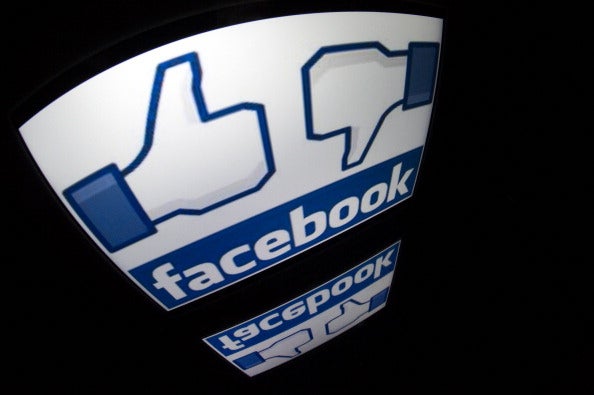Facebook reactions: Social networks could be friendlier if they lost the ‘like’ button
The button 'seems central to how social media infiltrates our mental health'

Your support helps us to tell the story
From reproductive rights to climate change to Big Tech, The Independent is on the ground when the story is developing. Whether it's investigating the financials of Elon Musk's pro-Trump PAC or producing our latest documentary, 'The A Word', which shines a light on the American women fighting for reproductive rights, we know how important it is to parse out the facts from the messaging.
At such a critical moment in US history, we need reporters on the ground. Your donation allows us to keep sending journalists to speak to both sides of the story.
The Independent is trusted by Americans across the entire political spectrum. And unlike many other quality news outlets, we choose not to lock Americans out of our reporting and analysis with paywalls. We believe quality journalism should be available to everyone, paid for by those who can afford it.
Your support makes all the difference.Is there a more dangerous First World problem than the six-year lust for a ‘dislike’ button on Facebook? Ever since the seemingly inoffensive ‘like’ button invaded our lives in 2009, Internet users have been clamouring for another shallow and restrictive way of broadcasting our emotions online.
Inexplicably, Facebook has just obliged by rolling out, not one, but six new variants to run alongside the famous thumbs-up, which Mark Zuckerberg claims will allow people to ‘better express how you’re feeling’.
The whole thing is breathtakingly artificial. Healthy social networks have to be accurate reflections of real life, instead of underworlds where only our insecurities reside. This means abandoning the almost barbarous practice of using a simple click to signal our approval. After all, in actual social situations, how often do we react to something clever or funny or pretty with a big fat thumbs-up?
Beyond the realms of cyberspace, human attributes cannot be counted or compared. The same should go for social networks but, instead, ‘likes’ (or their Instagram and Twitter equivalents) are viewed as a barometer of social success. Tragically, Facebook mob rule can deem political points invalid, jokes unfunny and photographs unattractive unless they receive a universally acceptable number of ‘likes’.
It is troubling to know how downhearted this click race makes some young people: their minds cartwheeling into desperation, subconsciously competing with their friends for external validation. No Facebook emoticon could express the powerful feelings that ‘likes’ can incite among teenagers. It is not just jealousy – the button seems central to how social media infiltrates our mental health.
Most of us know self-confessed social network addicts and, since the introduction of ‘likes’, they can hardly help feeling hooked. Kristen Lindquist, a professor of psychology at the University of North Carolina, has said our brains are wired to revel in the dopamine hormone that receiving ‘likes’ is scientifically proven to provide, which can ensnare us in a mild addiction.
Speaking with the Financial Times, she added: “You end up developing an association between Facebook and goodness, and that sustains the behaviour. As with cocaine addicts, over time you need more of that substance to get that feeling.”
It follows that users value ‘likes’ enormously, so links between social networks and self-esteem issues are inevitable. ‘Likes’ for photos, in particular, place a worrying emphasis on quantifying our looks and lead to unfair levels of judgement. Is it any wonder, then, that around half of those surveyed by the University of Salford said that social media harms their self-worth?
But still, they carry on posting. The power to press ‘like’ for an individual comment has triggered a new trend in confrontational online debates, with social networkers competing ruthlessly for approval. It is literal point-scoring and it often amounts to abuse.
In a world without ‘likes’, people might actually have to say nice things to each other online. Removing such a hollow gesture would leave us needing meaningful ways to express our approval while, nowadays, the numbers and negative voices stick out. I don’t like it.
Twitter: @DannyWittenberg
Join our commenting forum
Join thought-provoking conversations, follow other Independent readers and see their replies
Comments